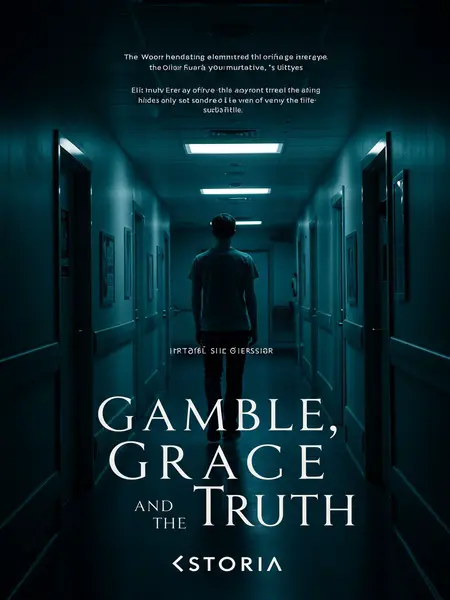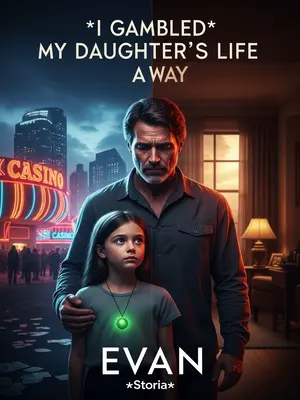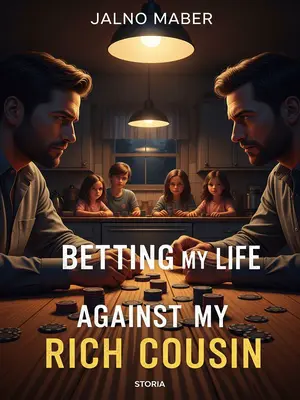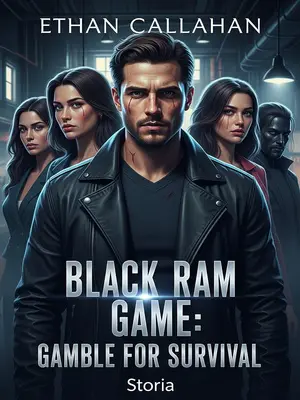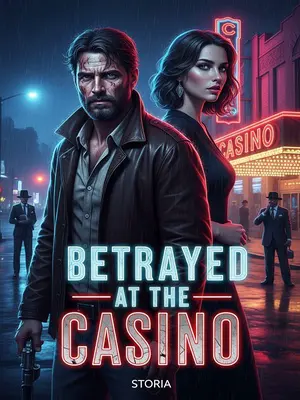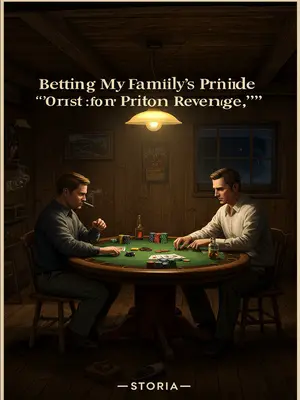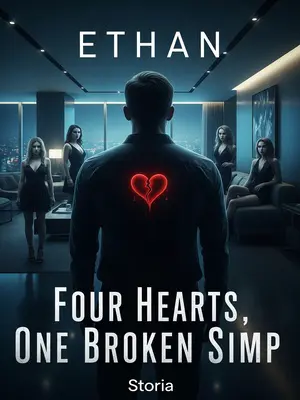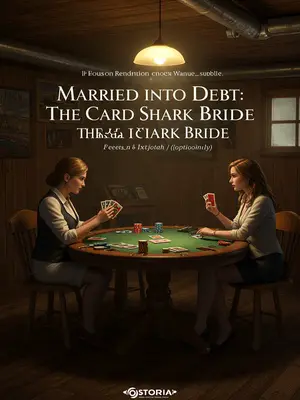Chapter 4: The Hustle and the Habit
After getting married, things eased between Travis and his father.
His old man forgave him, grudgingly. They worked side by side, pouring concrete and swinging hammers. The tension faded into routine.
He thought construction work was too tough and started looking for other options.
He complained about the heat, the hours, the endless noise. Travis wanted more—a shortcut, a way to win big.
He tried opening a fruit shop, selling shoes, delivering food—burned through all the money his dad gave him.
Each venture started with a flurry of hope, ended with bills piling up on the kitchen table. Travis shrugged, saying, “Just another lesson learned.”
But Travis was lucky. One night at a gaming cafe, he met a guy who played online games for a living. Supposedly, you could make tens of thousands a month if you were lucky.
The guy wore a hoodie and talked fast, flashing screenshots and payment receipts. Travis listened, hungry for a way out.
The next day, Travis started researching. He found out it was basically online sales: partner with game companies, find rich players, play with them, persuade them to spend money—“boosting,” VIP Discords, whale management. The company would give the companion 40% of the top-up, with voice/video strictly for gameplay talk, not anything personal.
These games were all mindless browser and mobile titles—no skill needed, just spend money to become the strongest. Think Clash of Clans meets Genshin mechanics; lots of middle-aged rich guys loved them.
At first, Travis worked alone. When clients wanted voice or video calls, he’d have Savannah help out.
She’d log in, say a few lines, laugh at their jokes. It felt weird, but Travis promised it was harmless and professional.
He didn’t close any deals in the first month. Second month, he landed a client who spent $200,000, and made tens of thousands from that one deal.
He came home grinning, tossing bills on the kitchen table. “Told you it would work,” he said, eyes sparkling.
He immediately reinvested, bought dozens of computers, and hired staff.
They crammed into a strip-mall office—folding tables, ethernet cables snaking across the floor, monitors buzzing day and night.
That year, Travis bought a car and a house in the city—he looked like a real success.
He posed for photos out front, keys in hand, Savannah at his side. Social media blew up, everyone envied the rise.
Savannah gave birth that year—premature, seven months along.
The hospital was a blur of fluorescent lights and worried faces. “We misread the dates back then,” I’d tell myself later. Grace arrived tiny but fierce, crying loud enough to shake the walls. Savannah held her close, tears mixing with laughter.
In a small town like ours, Travis could’ve just stayed home and enjoyed life, but he picked up a hobby that would ruin him—gambling.
The itch never left, no matter how good things got. The casino lights called to him, brighter than any success.
Marcus told me that on the day Savannah gave birth, Travis was still at the casino until midnight, not even worried about his wife and newborn.
The news hit me like a punch. I couldn’t believe he’d choose cards over family, not on that day.
I understood his love for gambling, but not showing up for the birth? That wasn’t like him.
Travis was many things, but he’d always been there when it mattered. This felt like a betrayal even he couldn’t explain away.
I started to suspect it all traced back to that night.
The secrets kept piling up, no matter how hard I tried to untangle them.
During that period, Travis gambled hard.
Every weekend, he was gone, chasing jackpots. The casino called him by name, and he answered every time.
He only played Poker—straightforward, almost no thinking in his mind: deal, compare, settle, next round—even though he knew real players treated it as a skill game.
I went to the casino with him once. At the table, he was a different person—bloodshot eyes, hoarse voice.
Biloxi allows smoking; ashtrays were ringed with burns, and dealers snapped “Checks change!” while chips slid like rain. He barely spoke, fingers twitching, sweat glistening on his brow.
Normally, he didn’t smoke—he just carried packs of Marlboros for show. But at the table, he always had a Camel in his mouth, convinced it brought him luck.
The smoke curled around him, thick and acrid. He tapped ash into a beer bottle, never looking away from the cards.
He didn’t slowly peel open his cards like others—he just flipped them over and slammed them on the table. Good cards, he’d take a drag and blow out the smoke with pride. Bad cards, he’d yank out the cigarette, stomp it out, spit, and curse, “Cheating!”
I watched, half fascinated, half horrified. The game consumed him—there was no room for anything else.
When he lost, he’d double his bets—lose $1,000, bet $2,000, lose again, bet $4,000, until he lost it all and borrowed from casino staff.
It was a downward spiral. I tried to pull him back, but he shook me off, eyes locked on the table.
They knew his game studio was profitable, so they were happy to lend.
They’d extend a casino marker or hand him a credit slip with a smile. Travis fit right in with the pit’s quiet math.
One late night, after losing big, he came to drink with me. I told him to quit gambling.
We sat at a corner booth, empty bottles between us. I tried to reason with him, but he just stared at the wall, lost.
He said, “Eli, I’m not like you. You can vent by writing. I can only feel alive at the gambling table.”
His voice was raw, almost desperate. It scared me, hearing how much he needed the rush.
I said, “But what about Savannah?”
I tried to shake him, make him see what he was risking. He looked away, jaw clenched.
Travis hesitated, then sighed: “I swear, nobody cares about Savannah more than I do.”
He said it like a confession, but the words sounded hollow. I wanted to believe him, but doubt crept in.
I wanted to curse him, but seeing him so drunk, I just shook my head and drank two glasses myself.
The night stretched on, silent and heavy. I couldn’t fix him, no matter how hard I tried.
It wasn’t until I heard something else that I finally lost it and called to rip into him.
Rumors circled everywhere, but this one felt personal. It was a betrayal layered on betrayal.
On a trip home during the holidays, I was singing karaoke with friends. Halfway through, a young, pretty manager came in and asked if we wanted girls to sing with us. I said no.
The room buzzed with laughter, neon mic signs flickering above private rooms. I thought nothing of it, until Marcus leaned in, a knowing smirk on his face.
After she left, Marcus gave me a look. “Know who that is?”
He tipped his chin toward the door, eyes glinting with mischief.
I shook my head.
“That’s Travis’s girlfriend—the woman he’s seeing.”
The words landed like a stone. I felt my jaw tighten, blood rushing in my ears.
“Mistress?”
I couldn’t believe it. Travis had always talked big, but I never thought he’d cross that line.
“Everyone knows—he sleeps at her place more than at home.”
Marcus said it like it was common knowledge, but to me, it was a revelation that stung deeper than any punch.
I stormed out and called Travis. It was noisy—he was probably still at the casino.
The sound of slot machines and chatter bled through the line. “Don’t you hang up on me,” I snapped, anger building.
I let him have it: “Are you even human? Gambling all night is bad enough, but you’re cheating too? Savannah must’ve been blind to marry a jerk like you…”
My words spilled out, harsh and unfiltered. I didn’t care who heard—he needed to know how I felt.
I ranted for five minutes. He asked, “Are you done?”
He sounded bored, almost resigned. I hated that.
“Yeah, I’m done.”
I spat the words, expecting a fight.
“Then I’m hanging up.”
He always tried to end arguments on his terms. Not this time.
“Don’t you hang up on me. We’re not done until we settle this.”
I pressed him, refusing to let go. The silence stretched, brittle and charged.
He was quiet for a moment, then said, “Eli, I’ve always had a clear conscience.”
He said it like a benediction, but it only made me angrier. What does conscience mean when others bleed for your choices?
Then he hung up.
The dead line echoed in my ear. I stared at the wall, hands shaking, feeling more alone than ever.
Clear conscience—he had the nerve to say that?
The words haunted me. I wondered if he’d ever understood the damage he’d done.
The favor he did me taking the fall for expulsion was now overshadowed by how he’d failed Savannah.
It felt like debts shifting in the dark—old wounds re-opened, new scars forming. I wasn’t sure who owed what anymore.
It felt like my life was a runaway movie, everything spinning out of control.
Scenes flashed past, blurred and chaotic. I couldn’t find the pause button, couldn’t catch my breath.
Like a rosary breaking—a single bead lost, the rest scattering everywhere—and I thought of those stepping stones, the shoulders I’d stood on, scattering, too.
Because of his gambling, and with the web game boom fading, Travis quickly racked up huge debts.
At one point, the monthly burn looked brutal—five figures in markers, payroll he couldn’t cover, rent overdue—and the calls wouldn’t stop.
At the same time, Grace’s medical checkup revealed some issues.
Insurance wanted prior authorizations; deductibles were a punch to the gut. It was the worst timing—every hope we had seemed to crumble at once.
Savannah once dragged him out of the casino, begging him to quit. That was the only time she stood on the street, pushing Grace, while the supermarket speakers played “Here Comes the Sun”: “Here comes the sun, and I say, it’s alright.”
The music spilled out onto the sidewalk, mixing with the hum of traffic. Savannah’s voice cracked as she pleaded, tears slipping down her cheeks. A bystander hovered, ready to help, but she shook her head.
Savannah cried and pleaded, “Can you stop gambling? Can’t you just be a little more clear-headed? Money doesn’t grow on trees, and you’ve blown it all away.”
Her words were sharp, desperate. I watched from across the street, heart aching for what I couldn’t fix.
Travis’s eyes were bloodshot from losing. He slapped her: “Why are you nagging me? Isn’t it enough that I don’t let you and your daughter starve?”
The slap echoed. A couple turned to look; someone muttered about the hotline posted at the grocery counter. I clenched my fists, wishing I could step in.
He went back to the casino, as if she didn’t exist.
Savannah stood outside the casino all afternoon, pushing Grace, until it got dark. Travis never came out.
She waited in the fading light, her silhouette shrinking with every passing hour. The world kept turning, but Travis was nowhere to be found.
From that day on, Savannah stopped caring about his gambling or his affairs.
She built a wall around herself, letting nothing in. The change was subtle but permanent.
She didn’t tell the neighbors how hard things were. She just quietly lived her life and took care of Grace.
She clipped coupons, prepped meals, tracked meds on a color-coded chart, and read to Grace at night. No one saw her cry but me.
Six months later, after seeing several top hospitals, Grace was diagnosed with lymphoma.
The oncologist’s office had infusion chairs, warm blankets, and a bell you ring at the end of treatment. The word hung in the air like a curse; we all pretended not to panic.
Travis swore to Savannah he’d turn over a new leaf, pay off his debts, and treat Grace’s illness.
He cut up his casino cards and blocked the bookies’ numbers. He made promises, eyes burning with resolve.
Don’t underestimate Travis—when it comes to shady business, he’s a pro.
He knew people. He also knew the risk.
When he got serious, he made money fast. He tapped his connections and started moving cash as a middleman—wiring money for Atlantic City bosses—and talked about nearly a 10% cut, even as he whispered about feds and RICO hanging overhead.
He paid off his debts in no time and even saved some money.
The relief was palpable—no more angry calls, no more threats. Savannah breathed easier, if only for a while.
Grace started treatment at a city hospital.
We learned the routines—cafeteria mac ’n’ cheese on Tuesdays, vending machines that took cards, chaplain visits that felt like quiet hugs, and the pain of parking validation.
Everyone thought Travis had finally quit gambling.
He played the role of the devoted father, showing up for appointments, promising he’d changed. For a while, it looked real.
